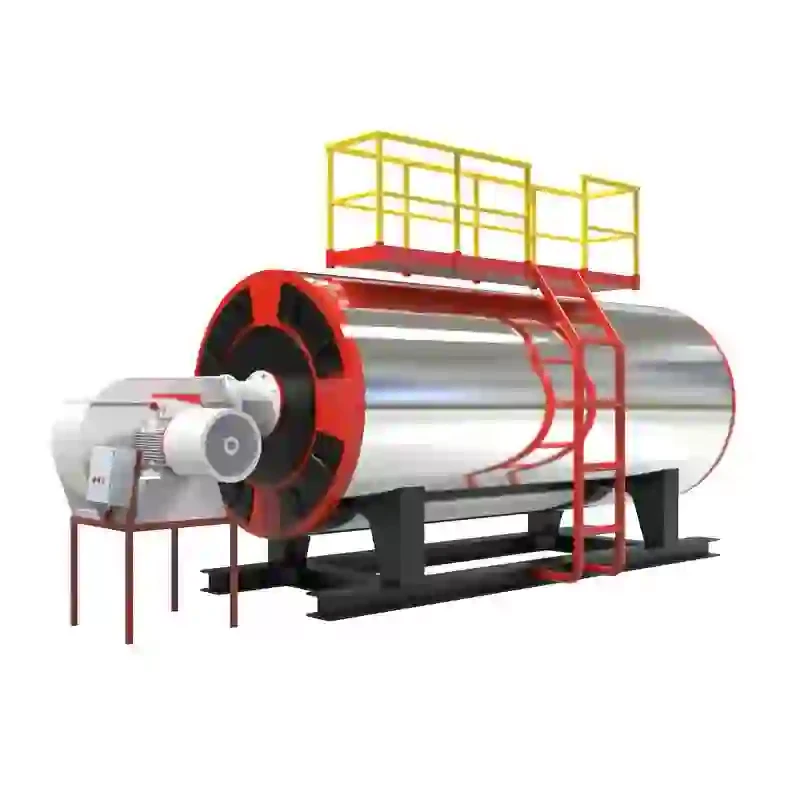
Nov . 21, 2024 19:30 Back to list
how does an oil fired boiler work
How Does an Oil Fired Boiler Work?
Oil fired boilers are a popular heating solution, especially in areas where natural gas is not readily available. Understanding how these boilers work can help homeowners make informed decisions about heating options for their homes. This article will explore the components and functioning of oil fired boilers, as well as their benefits and maintenance requirements.
Basic Components of an Oil Fired Boiler
An oil fired boiler consists of several key components
1. Oil Tank This is where the heating oil is stored before it is pumped into the boiler. The size and placement of the oil tank can vary, but it should be located in a safe and accessible area.
2. Burner The burner is responsible for atomizing the heating oil and mixing it with air to create a combustible mixture. The burner ignites this mixture to produce flames that heat the water in the boiler.
3. Boiler Shell This is the outer structure of the boiler, which contains the heated water and steam. The shell is designed to withstand high pressure and temperature.
4. Heat Exchanger Inside the boiler, the heat exchanger transfers heat from the burning oil to the water. As the flames heat the surfaces of the heat exchanger, the water surrounding it starts to warm up.
5. Pump The oil pump is responsible for transporting heating oil from the tank to the burner. It ensures a steady supply of fuel for the combustion process.
6. Flue The flue system channels the exhaust gases produced by the combustion of oil outside the home, preventing harmful gases from entering living spaces.
The Working Principle
The operation of an oil fired boiler can be broken down into several steps
1. Filling the Oil Tank Homeowners fill the oil tank with unrefined heating oil, often marked as No. 2 fuel oil. The tank can be above ground or below ground, depending on local regulations and personal preference.
how does an oil fired boiler work

2. Heating the Oil When the thermostat in the home signals for heat, the boiler initiates the process by using the oil pump to draw oil from the tank to the burner.
3. Combustion Process The burner atomizes the oil, mixing it with the required amount of air before igniting it with an electronic spark. The resulting flame heats the fluid in the heat exchanger.
4. Heating the Water As the oil burns, the heat produced is transferred to the water in the boiler. The temperature of the water increases, which can reach boiling point or higher depending on the type of boiler.
5. Distributing Heat The hot water or steam produced by the boiler is then circulated through pipes to provide heating to radiators, underfloor heating systems, or domestic hot water.
6. Exhaust Management The flue system collects and exhausts the combustion gases outside, ensuring safety and efficiency. Modern boilers are designed with efficiency in mind, minimizing any lost heat and maximizing output.
Advantages of Oil Fired Boilers
Oil fired boilers offer several benefits
- Efficient Heating They typically provide a high level of efficiency, which can translate to lower fuel bills. - Cost-Effective In regions where natural gas is not available, heating oil can be a more economical choice. - Reliable Oil boilers are known for their reliability and can perform well even in extremely cold weather. - Long Lifespan With proper maintenance, oil fired boilers can last for many years, often more than a decade.
Maintenance Requirements
To ensure the efficiency and longevity of an oil fired boiler, regular maintenance is crucial. Homeowners should schedule annual servicing with a qualified technician who can check key components such as the burner, flue system, and oil tank for any leaks or issues. It is also important to keep the oil tank full to prevent condensation that can lead to clogging and other problems.
Conclusion
Understanding how an oil fired boiler works can help homeowners appreciate their efficiency and reliability as a heating option. With proper installation and maintenance, these boilers can offer effective and cost-efficient heating solutions for many years. Whether considering a new installation or existing boiler care, the knowledge of these systems provides valuable insight into home heating management.
-
High-Efficiency Commercial Oil Fired Steam Boiler for Industry
NewsJul.30,2025
-
High-Efficiency Biomass Fired Thermal Oil Boiler Solutions
NewsJul.30,2025
-
High Efficiency Gas Fired Thermal Oil Boiler for Industrial Heating
NewsJul.29,2025
-
High-Efficiency Gas Fired Hot Water Boiler for Sale – Reliable & Affordable
NewsJul.29,2025
-
High Efficiency Biomass Fired Hot Water Boiler for Industrial and Commercial Use
NewsJul.29,2025
-
High-Efficiency Biomass Fired Hot Water Boiler for Industrial Use
NewsJul.28,2025
Related PRODUCTS






















